
Sewage Treatment Plant & further irrigation at LPU
LPU boasts a state-of-the-art sewage treatment system that adheres to stringent government regulations. This advanced system includes a Sewage Treatment Plant (STP) with an impressive capacity of 5 MLD (50 lakh liters), which efficiently processes wastewater from dormitories, offices, and other facilities. The treated water is then repurposed for horticulture and agricultural use, while the resulting sludge is utilized as organic fertilizer for gardens. Additionally, a smaller STP with a 10 KLD (10,000 liters) capacity is available at the Main University Playgrounds for handling wastewater from sports fields. The water quality is rigorously monitored by government-approved labs in accordance with the Water (Prevention and Control of Pollution) Act of 1974. Authorized by the Punjab Pollution Control Board, the treated water is deemed safe for irrigation and crop cultivation, ensuring it does not harm existing aquatic ecosystem and its biodiversity or contribute to pollution and eutrophication issues.
Rain Water Harvesting system at LPU
Primary source of water is groundwater so no aquatic life is disturbed as water is not being harnessed from surface water bodies. Further ground water is also being used responsibly and being recharged through rain water harvesting. Rain water harvesting is a unique technique to recharge ground water naturally. LPU carries out rain water harvesting in most of its buildings through the most recent available technology and carries out this responsibility in most positive manner. There are 39 Number of reverse bores available for ground water recharge. These rain water harvesting bores at LPU are certified by Department of Water Resources, Ministry of Jal Shakti, Government of India for the year 2019 and were checked by accredited labs.
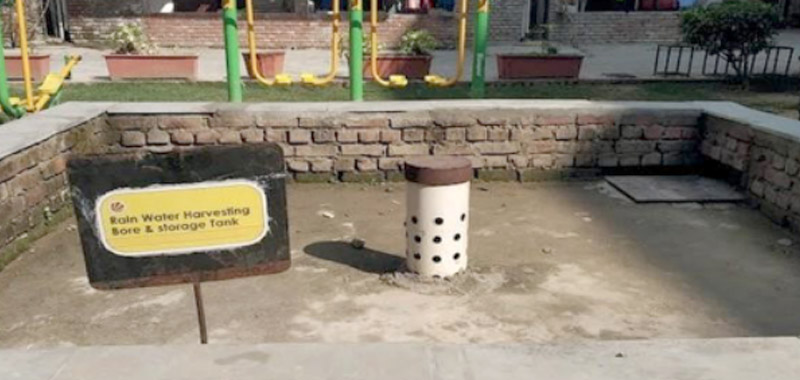
Rain Water Harvesting Bore at LPU
Research on Diatoms: an important organism representing the quality of life below water:
Industrial toxic discharge has an adverse effect on coastal areas and marine waters worldwide. These occurrences can be largely attributed to increased levels of eutrophication, pollutant contamination, and siltation caused by humans. According to two studies carried out in mesotrophic and oligotrophic areas, marine benthic diatoms are common, ubiquitous, and sensitive to nutrient variation in terms of ecosystems and water chemistry. Students and teachers of School of Bioengineering and Biosciences are working on diatoms to study their role in understanding the health of water bodies.
Diatoms assemblages respond rapidly to any environmental changes. Due to its high sensitivity to environmental change, they are one of the important bio-indicators of heavy metals pollution of water bodies. Figure: Compound microscopic image of colony of diatom Diadesmis sp. Diatoms are an excellent tool for reconstructing the past ecological conditions as well as indicating water characteristics.
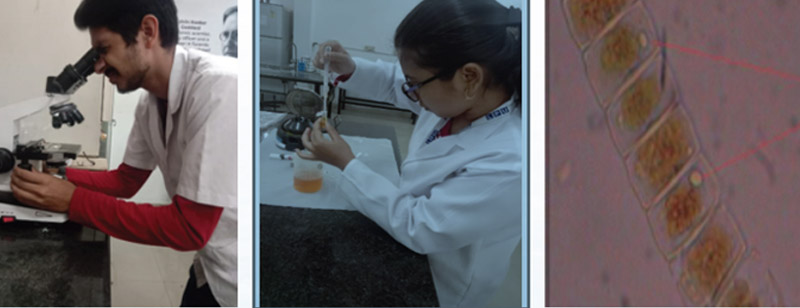
LPU Students working in lab on diatoms study

Figure: Compound microscopic image of colony of diatom Diadesmis sp. Diatoms are an excellent tool for reconstructing the past ecological conditions as well as indicating water characteristics.
LPU supports research in the field of life under water and research is carried out in this relevant field by faculty and students. To support aquatic ecosystem through education, LPU is providing a compulsory input of environmental studies to its students through its academic programs. These courses help students to understand aquatic ecosystem in better way. LPU researchers are contributing their knowledge enhancement through research in the field of microplastic its estimation and water pollution studies of nearby water bodies and its effects onto the living organisms.
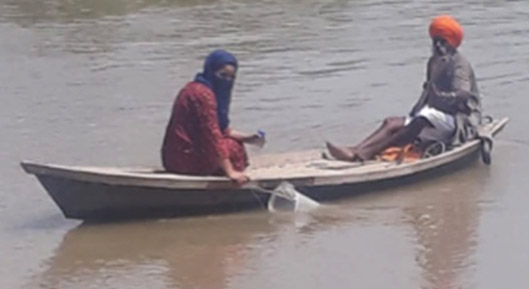
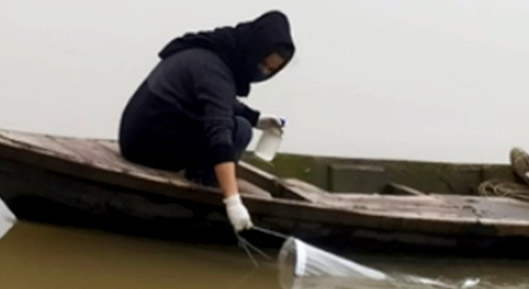
The researchers also raised awareness about overfishing, illegal, and destructive fishing practices among the local community.
Conserve coastal and Marine area- through studies on Marine Benthic Meiofauna
Efforts to understand the effects of anthropogenic activities on marine ecosystems, the LPU researcher Ms. Sanofar Khokher conducted a study for raising awareness and developing conservation strategies. Anthropogenic activities, such as pollution and habitat destruction, can have severe consequences for meiofauna and the entire marine ecosystem. By studying these impacts, researchers can work towards finding solutions to mitigate and prevent further harm.

For conservation of aquatic sources, LPU researchers secure patent for eco-friendly process to desalinate sea water using waste food
A team of LPU researchers has bagged a patent from Indian Patent Office for coming up with a novel and eco-friendly process to desalinate sea water using waste food. The process has been successfully lab tested and found to be 75-80% efficient, making the sea water fit for regular household chores like – mopping, washing clothes and dishes, bathing and even irrigation. The research was conducted by Dr. Tanay Pramanik and Dr. Runjhun Tandon, Professors at Lovely Professional University, and Mandeep Singh and Stanzin Lzaod, B.Sc. students of LPU. The existing methods of desalination generate enormous amount of harmful chemical waste whereas this new process invented by LPU researchers uses starch from corn, rice or any other food item and generates ‘zero waste’. University is now looking for commercialization of the process and once used by an industry player at large scale, it would cost just Rs.2/- to desalinate one litre of sea water. Link to View document: Click here
Green Filter Technology: Onsite Wastewater Treatment of Sludge Drain, Phagwara, Punjab
In a collaborative project with McGill University Canada, LPU scientists has demonstrated on-site Green Filter technology for treating municipal and industrial wastewater. in continuation the same has been Carried forward with Punjab Pollution Control Board and Municipal Corporation Kapurthala Punjab. The students of LPU also have developed technology and filed patents. Mr. Simranjeet Singh has developed technology for removal of heavy metals from water using biochar. Ms. Deepika Bhatia developed filtration assembly for wastewater treatment.
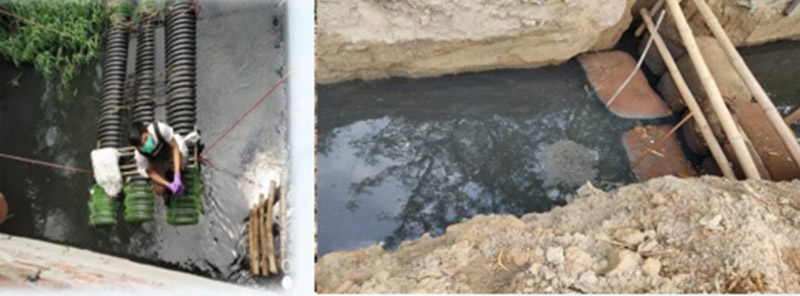
Use of Green filter technology for filtering industrial waste
Live project work related to Academics
LPU students have undertaken aquaponic project to explore its sustainability and increasing awareness of this food production system. Aquaponics, a combination of aquaculture (fish farming) and hydroponics (soilless plant farming), uses fish wastewater as a resource, circulating it through hydroponic grow beds where plants take up its nutrients. The filtered water is then recycled back through the fish tanks.
Click here to view document
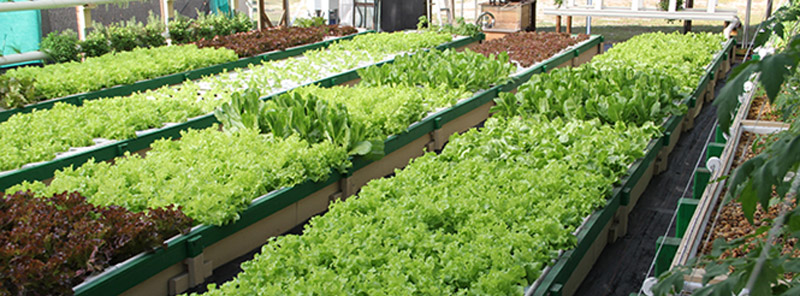
Soilless plant farming using waste water of Fish



